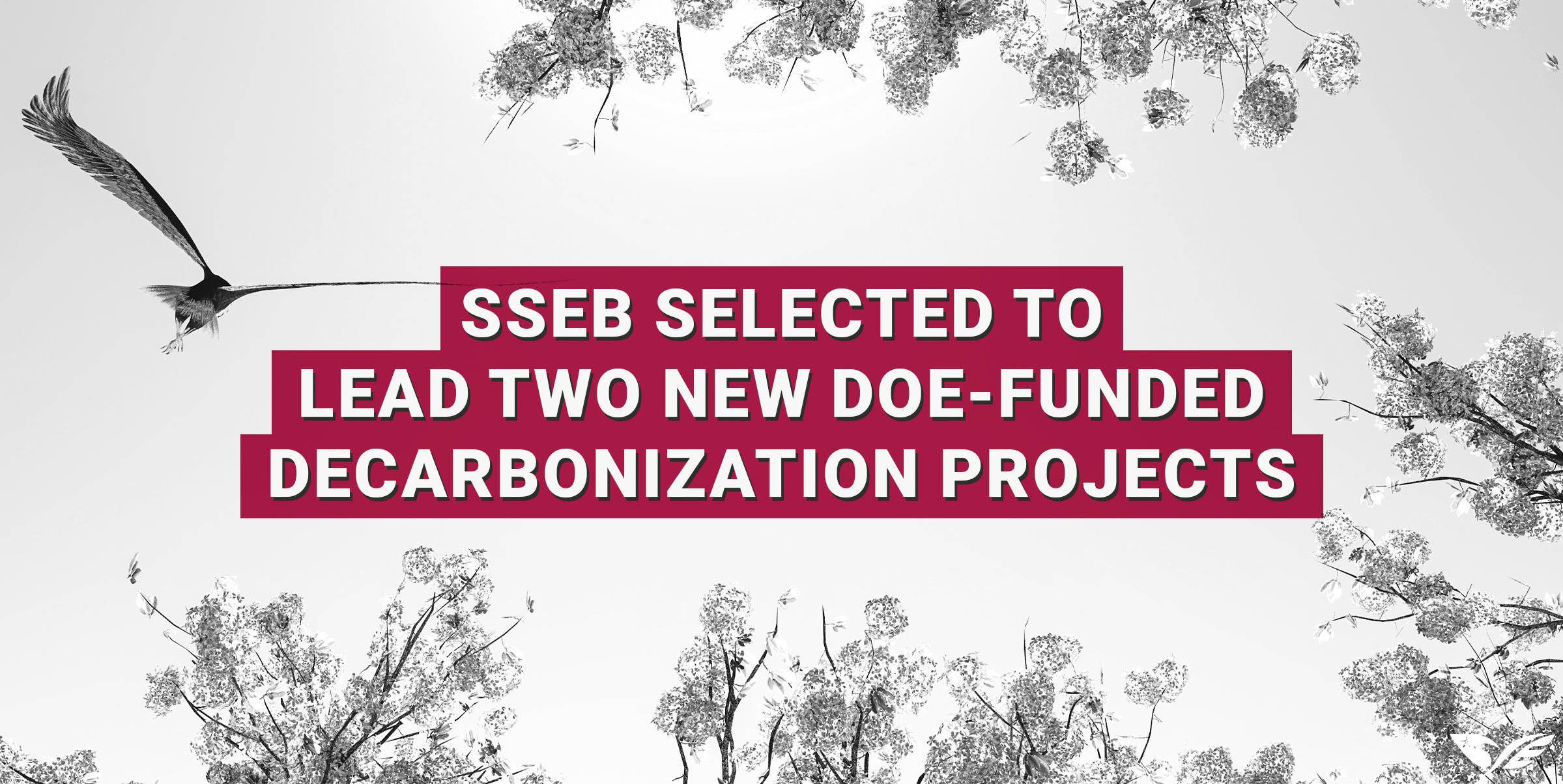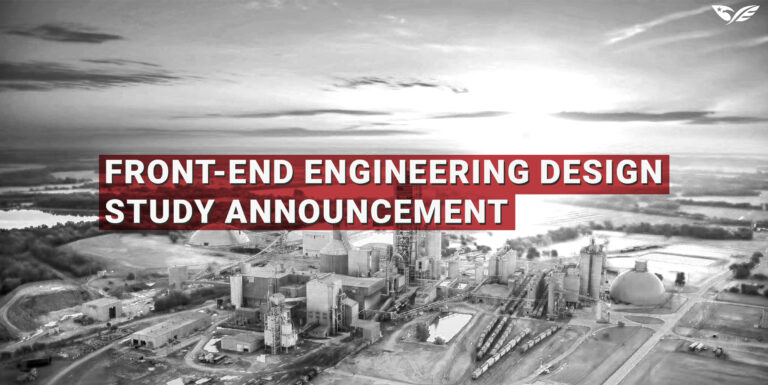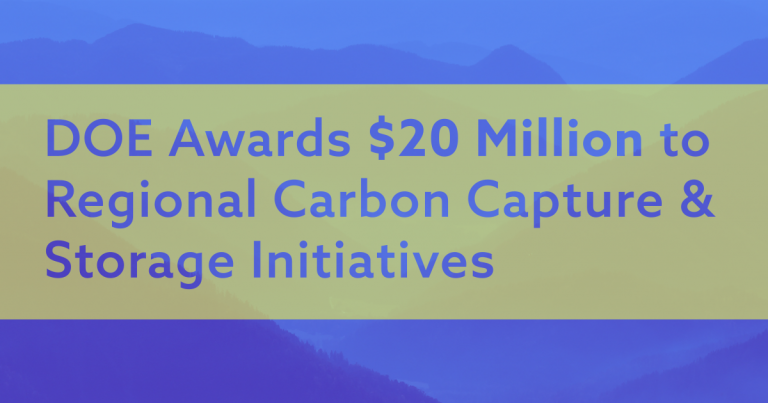SSEB Selected to Lead Two New DOE-funded Decarbonization Projects
Yesterday, the Department of Energy’s Office of Fossil Energy and Carbon Management announced the selection of the Southern States Energy Board to lead two separate projects sharing the goal of industrial decarbonization. The two projects, Project ACCESS and the Tri-State CSS Hub, are described below.
Atlantic Coast CO2 Emissions Storage Sink (Project ACCESS)
In collaboration with Titan Florida, LLC, and a diverse team of partners, Project ACCESS aims to establish a commercial-scale carbon capture and storage (CCS) hub to significantly reduce carbon dioxide (CO2) emissions.
Project ACCESS is a 24-month initiative designed to create a regional carbon storage hub. The project seeks to support the U.S. Department of Energy’s CarbonSAFE Phase II Program goals by reducing risks and costs associated with CCS projects.
The endeavor will focus on capturing CO2 emissions from industrial sources, particularly the Titan America’s Pennsuco Cement Plant, and storing them safely and securely underground. Miami-Dade County is home to multiple CO2-emitting facilities, releasing approximately 7.5 million metric tons of CO2 annually. Project ACCESS aims to capture and store over 6.6 million metric tons per year, contributing significantly to carbon reduction goals.
The project will utilize geophysical methods and a stratigraphic test well to gather site-specific geological information. This data will be crucial in confirming the suitability of the storage site. Successful reservoir characterization will pave the way for a new opportunity for CO2 storage in the limestone-rich geology of south Florida.
Project ACCESS not only aims to reduce carbon emissions but also has several benefits for the local community and economy. The limestone mining and cement manufacturing sector will benefit from decarbonization, enhancing the marketability of their products. Additionally, the project will create job opportunities, promote diversity, equity, and inclusion, and facilitate engagement within the community to address environmental concerns.
The venture includes a comprehensive Community Benefits Plan, focusing on community and labor engagement, investments in job quality and a skilled workforce, as well as diversity, equity, inclusion, accessibility, and the Justice40 Initiative. The plan aims to develop a diverse list of community contacts, host engagement events, and promote career opportunities in the CCS industry.
Alongside SSEB and Titan Florida, LLC, the project team includes experts from Advanced Resources International, Crescent Resource Innovation, Florida International University, the United States Geological Survey, and Virginia Tech.
Project ACCESS is expected to lay the groundwork for subsequent project phases, advancing carbon capture and storage efforts and contributing to a cleaner and more sustainable future.
Tri-State CCS Hub
In a region with 131 industrial facilities emitting nearly 47 million tons of carbon dioxide (CO2) annually, a promising initiative, the Tri-State CCS Hub, is emerging to help businesses lessen the environmental impact of these emissions.
Through carbon capture and storage (CCS), the Tri-State CCS Hub seeks to significantly reduce CO2 emissions in an industrial region of eastern Ohio, the adjacent northern panhandle of West Virginia, and western Pennsylvania. The U.S. Department of Energy’s (DOE) Office of Fossil Energy and Carbon Management selected the Tri-State CCS Hub for negotiation for funding to support the characterization and permitting efforts to develop the storage site.
The DOE funding, if awarded, brings together developer Tenaska and the Southern States Energy Board (SSEB). The team also includes key industry and academic partners such as Ohio State University, West Virginia Geological and Economic Survey, and West Virginia University.
SSEB is a non-profit interstate compact representing 16 southern states and two territories. The Board’s mission is to enhance economic development and the quality of life in the South through innovations in energy and environmental policies, programs, and technologies.
The project will seek the advice and collaborative input of local community, labor, and economic development organizations, elected officials, and regional CO2 emitters.
The Tri-State CCS Hub is a crucial move toward responding to the increasing demand for decarbonized manufacturing solutions and power generation. By fostering collaboration among state regulators, particularly along the Ohio River, the hub aims to minimize regulatory uncertainties for regional industries spanning the surrounding state boundaries. This not only allows these businesses to remain stable employers and taxpayers but also paves the way for new energy careers.
To achieve these goals, the project will meticulously study four geological reservoirs to assess their suitability for CO2 storage. The team will employ advanced geophysical methods to better understand the formations and their projected capacity.
The project will emphasize community engagement through a robust Community Benefits Plan. This plan focuses on community and labor engagement, job quality, workforce development, diversity, equity, inclusion, and accessibility, as well as the Justice40 Initiative. Noteworthy commitments include the establishment of a Community Advisory Board, pre-drilling community events, and partnerships with educational institutions to promote career opportunities in the energy transition sector.
This initiative marks a significant stride toward a more sustainable future for the region, setting the stage for impactful change in the broader context of lessening interstate industry emissions across the United States.






